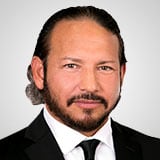The common expression “cash cow” was coined by the great management guru Peter F. Drucker in the 1960s to refer to a product or business that continues to retain its sizable market share, even as the market itself is stagnant or declining, explains Jim Woods, ETF specialist and editor of The Deep Woods.
Such a business or product is able to continually churn out profits with little maintenance, investment or oversight, in much the same way that a cow is able to generate milk virtually endlessly if simply provided with grass for grazing. Meanwhile, the funds that are generated are then able to be used by the parent company for investment or research and development purposes.
Nowadays, it seems that many investors are looking for their own cash cows in a time when the Treasury yield curve inversion reached levels not seen since 2007.
Of course, there are exchange-traded funds that will do well if bond yields begin to come back down due to a slowing economy. One such ETF is the Pacer US Cash Cows 100 ETF (COWZ).
This ETF is focused on the belief that companies with a high free cash flow are the most stable ones. The fund’s managers begin with the Russell 1000 index and then screen companies via their average projected free cash flows and earnings for the next two fiscal years.
Companies with negative cash flow or earnings are removed. Then, the qualifying companies are ranked according to their 12-month free cash flow yield. The ETF index is then comprised of the top 100 names. Each security is capped at 2% of the index.
The top holdings in the portfolio are McKesson Corporation (MCK), CVS Health Corporation (CVS), Cisco Systems, Inc. (CSCO), Nucor Corporation (NUE), Moderna, Inc. (MRNA), General Dynamics Corporation (GD) and Gilead Sciences, Inc. (GILD).
As of Aug. 23, COWZ has risen 29.76% year to date. The fund has amassed $7.45 billion in assets under management and has an expense ratio of 0.49%.
In short, while COWZ does provide investors with access to potential “cash cows,” this kind of ETF may not be appropriate for all portfolios. Thus, interested investors always should conduct their due diligence and decide whether the fund is suitable for their investing goals.










